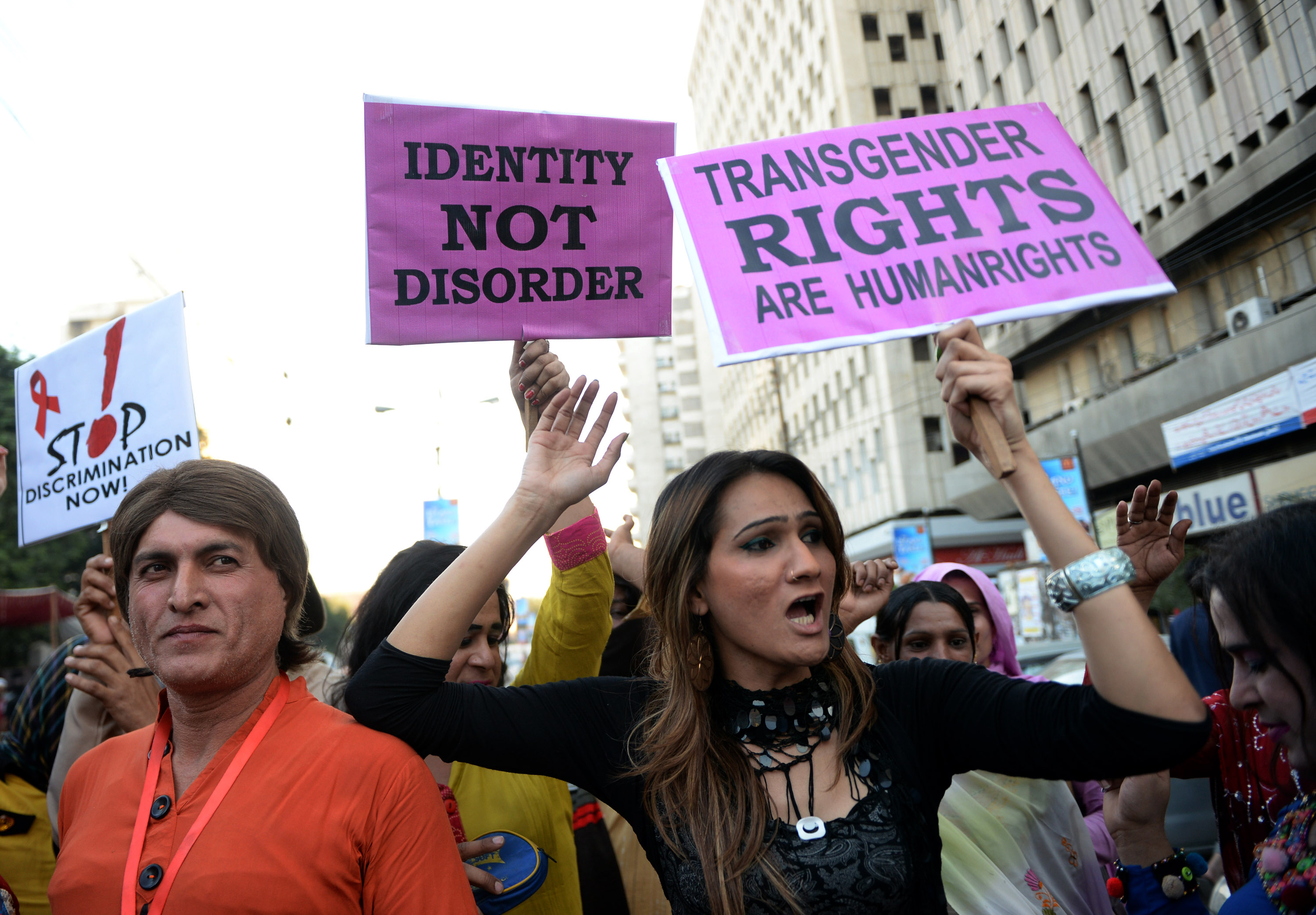Pakistan’s transgender community, already forced to the fringes of society, are being deprived of crucial support during the country’s coronavirus lockdown. (ASIF HASSAN/AFP/Getty Images)
Existing inequalities that mean trans people are more likely to have mental and physical health problems are being exacerbated by coronavirus, according to scientists who are urging governments to act.
The COVID-19 crisis, the scientists say, has wrought “devastating psychological distress” on a global scale.
Before the pandemic, trans people already faced barriers to healthcare like a lack of specialists and long waiting lists for treatment (the average wait to see a gender specialist in the UK is three years), which means that “very few transgender individuals receive gender-affirming surgeries and hormone interventions, especially in low-income and middle-income countries”.
Writing in medical journal The Lancet, scientists from the Chinese National Clinical Research Centre on Mental Disorders and Peking University Third Hospital in China, and the universities of Oxford and De Montfort in the UK, say governments must urgently consider the impact of the pandemic on trans communities around the world.
“As a marginalised group, inequalities faced by transgender individuals in policies and social aspects, such as legislated policies based on binary gender norms, could increase the risk of illness and mortality during the COVID-19 pandemic,” wrote the group of six scientists, who are endocrinologists and specialists in transgender healthcare.
“In addition, to prevent the potential overload of health-care systems by COVID-19 cases, most hospitals have cancelled or postponed elective procedures to save resources.
“Thus, it is even more difficult for transgender individuals to access hormone interventions and gender-affirming surgeries.
“Besides access to health care, it is also important to highlight mental health issues of transgender individuals.
“Previous studies showed that gender-affirming surgery was associated with reduced mental health problems.
“Because of the difficulties caused by coronavirus discussed above, it is likely that trans individuals are also facing challenging situations with regards to their mental health.”
The scientists are calling for governments to urgently find ways of making sure that trans people who are on hormone treatments don’t get that treatment suddenly stopped, and to provide remote, virtual appointments so that trans people can still be monitored by gender specialists.
“In response to the ongoing COVID-19 pandemic, we suggest that governments, policy makers, and the private sector should actively consider the unprecedented difficulties and situation faced by transgender people when planning to address the health-care crisis, and implement suitable strategies to help this minority group,” the group ends their letter.
